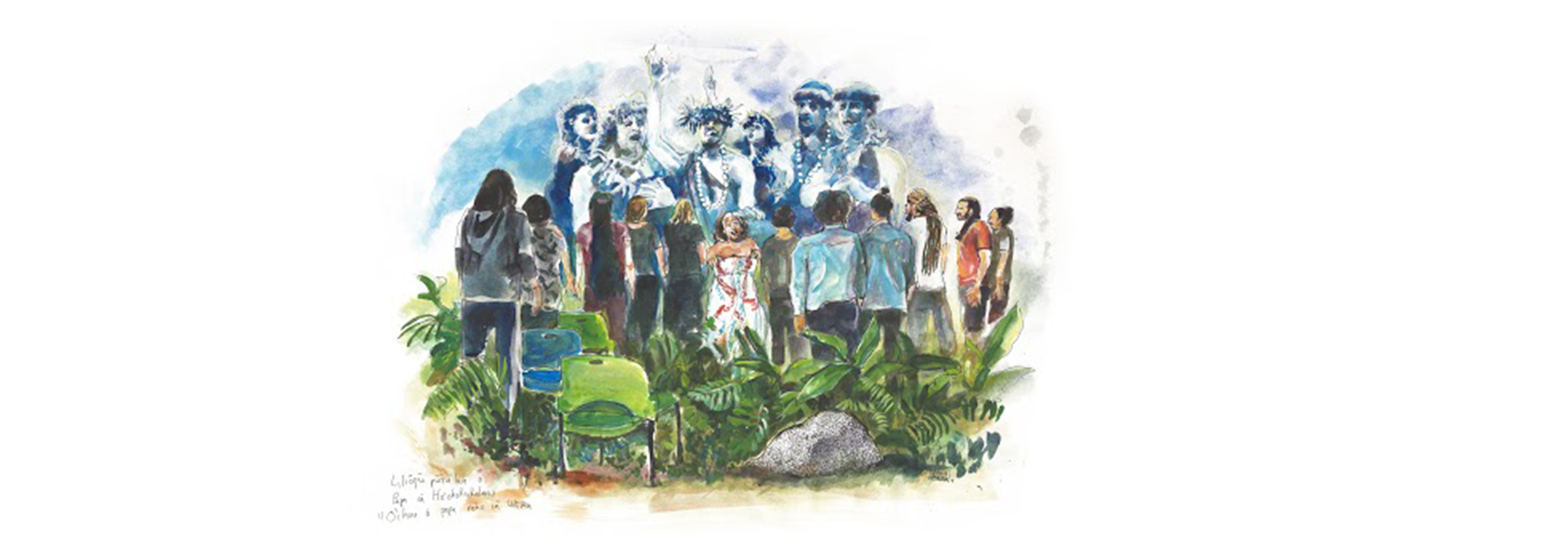By: Krista Davidson
9 Jul, 2020

Indigenous researchers and experts from around the world have teamed up to publish “Indigenous Protocol and Artificial Intelligence,” a position paper that provides a starting place for designing ethical AI through an Indigenous-centred approach.
The Indigenous Protocol & AI workshop team, supported by the CIFAR AI & Society Program, developed the paper following discussions that took place over 20 months and across 20 time zones. Those discussions included two workshops which brought together people from Indigenous communities across Aotearoa (New Zealand), Australia, North America, and the Pacific Region.
The paper offers a range of ideas, questions, and approaches to be considered when centering Indigenous knowledge in the development of AI.
“Many of the guidelines and manifestos that are coming out mostly centre around the human, which is not in alignment with most Indigenous methodologies,” explains Jason Edward Lewis (Hawaiian-Samoan), a professor with Concordia University’s Design and Computation Arts department, and a member of the workshop leadership group.
“We as a society allow AI to collect our data and make decisions that impact us, so we should develop an understanding of what kind of relationship we want to have with AI,” says Lewis. “Is AI a slave to a human master, or do we want to create intelligent systems with respect? It’s a better world for all of us if we treat these systems with respect, and teach them to treat us with respect,” he says.
“The protocols that many of our Indigenous cultures have developed to respectfully deal with non-humans could be a pathway to try and understand what we are using AI to create and why,” says Lewis.
The position paper features a collection of heterogeneous texts that include design guidelines, scholarly essays, artwork, descriptions of technology prototypes, and poetry. Together they examine AI through different Indigenous epistemologies and technological practices.
Caroline Running Wolf, née Old Coyote (Crow) is a PhD student at the University of British Columbia and one of the contributors to the position paper. Her PhD research with the Kwakwaka̱ ’wakw on North Vancouver Island, B.C. explores how immersive technologies can support Indigenous language and culture reclamation efforts.
“AI is built by engineers that do not represent a cross cut of society. When we talk about data, for Indigenous communities, it’s not just about bits and bytes, it’s the sacred stories and voices of our ancestors,” she says.
She aspires that the position paper will start a dialogue and build awareness of the relationship between AI and that Indigenous data sovereignty and protocols will become recognized and respected as basic human rights when designing AI.
The Indigenous Protocol & AI workshop leadership team includes: Jason Edward Lewis, Concordia University, Canada; Angie Abdilla, Old Ways. New. Indigenous Knowledge Consulting, Australia; ʻŌiwi Parker Jones, Oxford University, United Kingdom; Fox Harrell, MIT, United States.
Workshop participants come from Anishinaabe, Barada/Baradha, Cree, Crow, Cheyenne, Coquille, Euskaldunak, Gabalbara/Kapalbara, Gadigal/Dunghutti, Kanaka Maoli, Kapalbara, Lakota, Māori, Mohawk, Palawa, and Samoan communities. Most of the people involved practice in various ways at the intersection of Indigenous culture and digital technologies.
Supported by the CIFAR Pan-Canadian AI Strategy, the CIFAR AI & Society Program brings together diverse experts from across disciplines, sectors and borders to address some of the most fundamental challenges posed by AI. The AI & Society program is a pillar of the CIFAR Pan-Canadian AI Strategy, which aims to develop global thought leadership on the economic, ethical, policy and legal implications of advances in artificial intelligence.